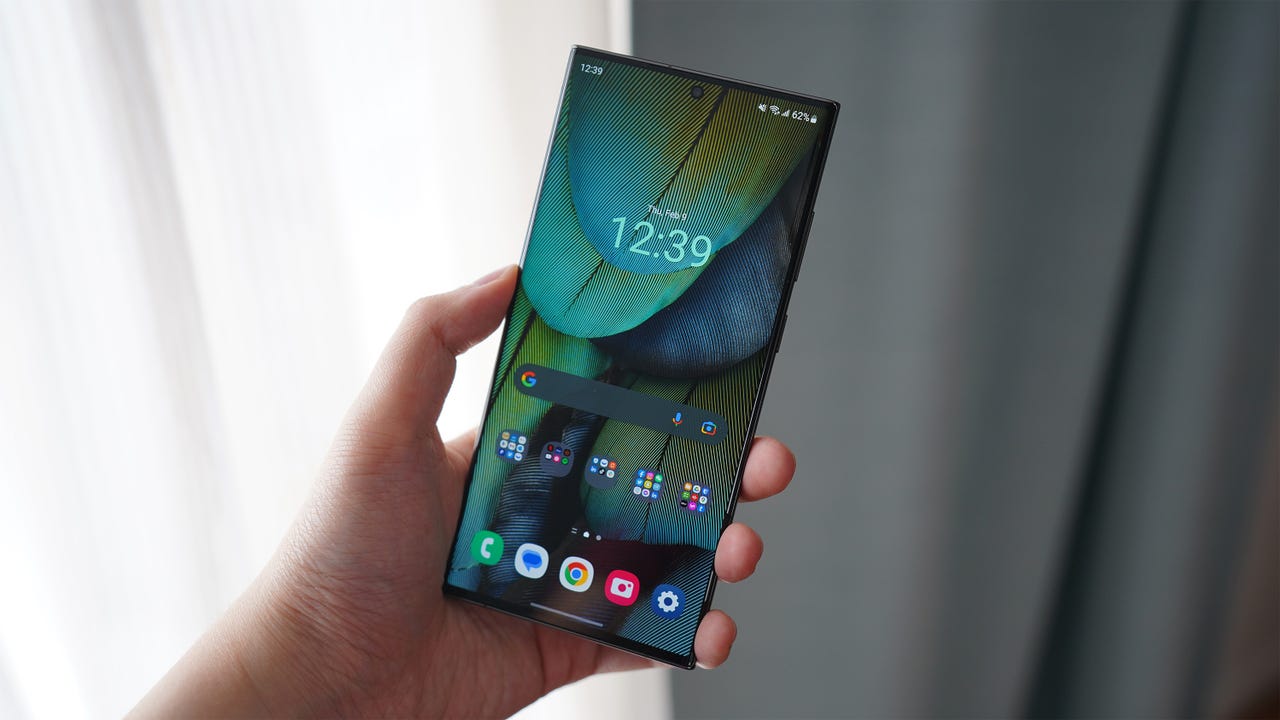































 Image: June Wan/
Image: June Wan/ Samsung is releasing a new voice-cloning feature that people with a Galaxy smartphone can use to create an AI-generated version of their voice for answering calls.
The feature is coming to the Bixby smartphone assistant as an AI enhancement to the "text call" feature, which lets users type responses when they can't use voice to answer a call. This response is converted into audio by Bixby and then responds to the caller. But instead of using the Bixby voice, the Bixby "Custom Voice Creator" option lets users record sentences in their own voice. Bixby then creates the AI-generated copy in the user's voice and tone for messages instead.
"Using the new Bixby Custom Voice Creator users can record different sentences for Bixby to analyze and create an AI generated copy of their voice and tone," Samsung explains.
In Depth: These experts are racing to protect AI from hackers. Time is running out
Samsung is rolling out Bixby text call to English-speaking markets now, while the custom voice generator is only available in Korean currently.
The voice-cloning feature is limited to calls on the Samsung Phone app for now, but Samsung plans to make it available for other Samsung apps.
Bixby text call is available on the Galaxy S23, S23+, S23 Ultra, Z Fold 4, and Z Flip 4, with One UI 5.1 or above for English. The voice-creator feature works on the Galaxy S23, S23+, and S23 Ultra.
Also: Best phone showdown: The top iPhone, Galaxy, and Pixel models stacked up
AI-generated voice is a growing area of interest for big tech companies. Amazon recently decided to show off Alexa's voice-generation capabilities, somewhat awkwardly, by demonstrating it reading a children's story in the voice of the child's deceased grandmother. "While AI can't eliminate that pain of loss, it can definitely make their memories last," an Amazon exec said.
There are concerns about how AI-generated voice technology could be used to create deepfakes for misinformation campaigns or voice phishing. The FBI warned last year that it had seen an uptick in the use of fraudulent job applicants using voice deepfakes during online interviews.
Also:Samsung aims to reach net zero carbon emissions by 2050
It would seem OpenAI's decision to publicly release ChatGPT has opened the floodgates for others to release generative AI features or products, most notably Microsoft via Bing Chat and Google in Google Bard, plus the APIs each firm is making available to third-party developers.
I tried Resemble.AI's GPT-3-based voice-synthesizing generator. It required a 30-second recorded sample of me repeating the site's terms of usage for my voice recording. The sample was uploaded to its servers and synthesized within about a minute. I then typed a brief sentence that it replayed in what was a clearly enunciated and reasonably close copy of the tone of my voice, but spoken in a strong North American accent that is very different to my mild Australian accent.
Separately, Samsung also flagged upcoming improvements to AI-based voice dictation after integrating its on-device AI with Samsung applications. This initiative sounds like Samsung is working on an answer to Google's voice-dictation feature that is available exclusively on the Pixel 6 and 7 devices using Google Assistant.
 Etiquetas calientes:
negocio
empresas
Etiquetas calientes:
negocio
empresas